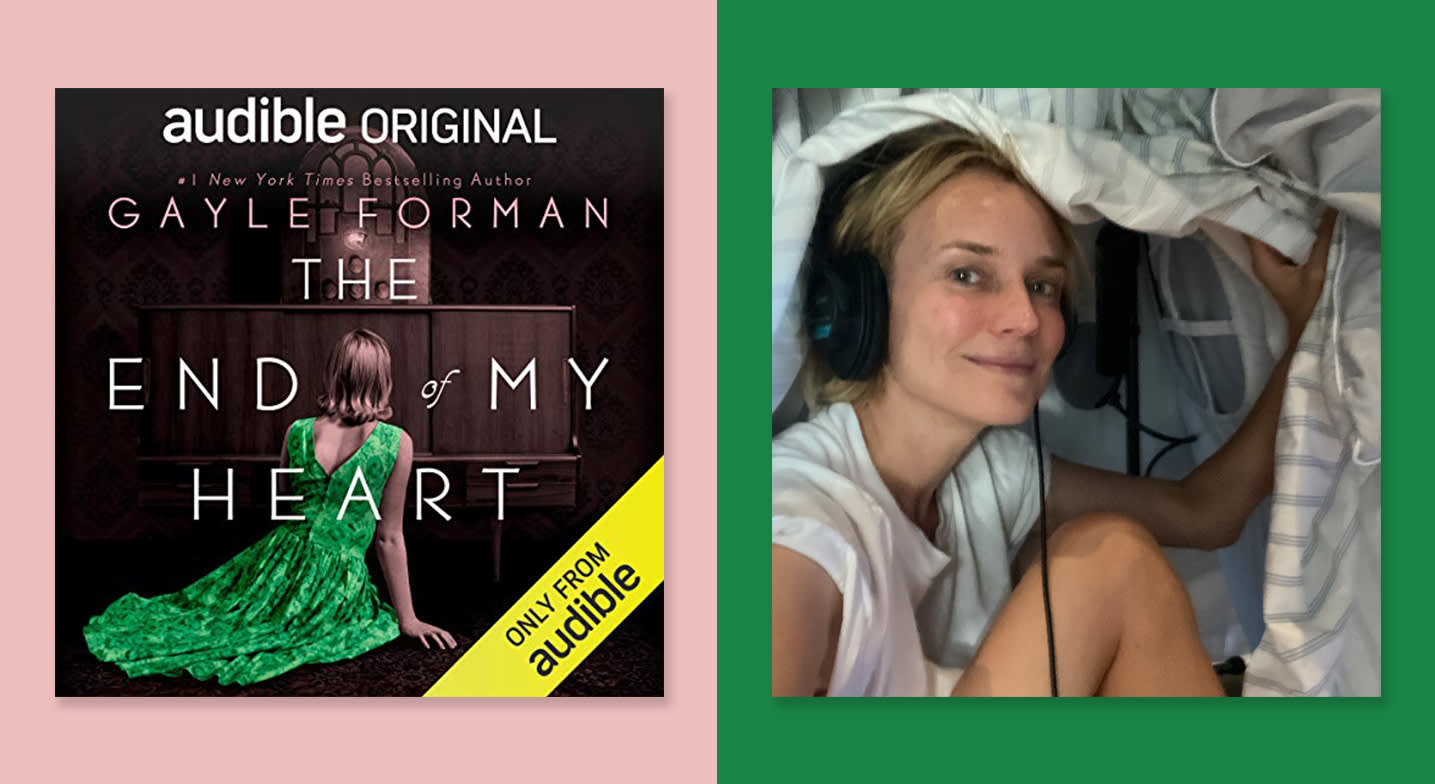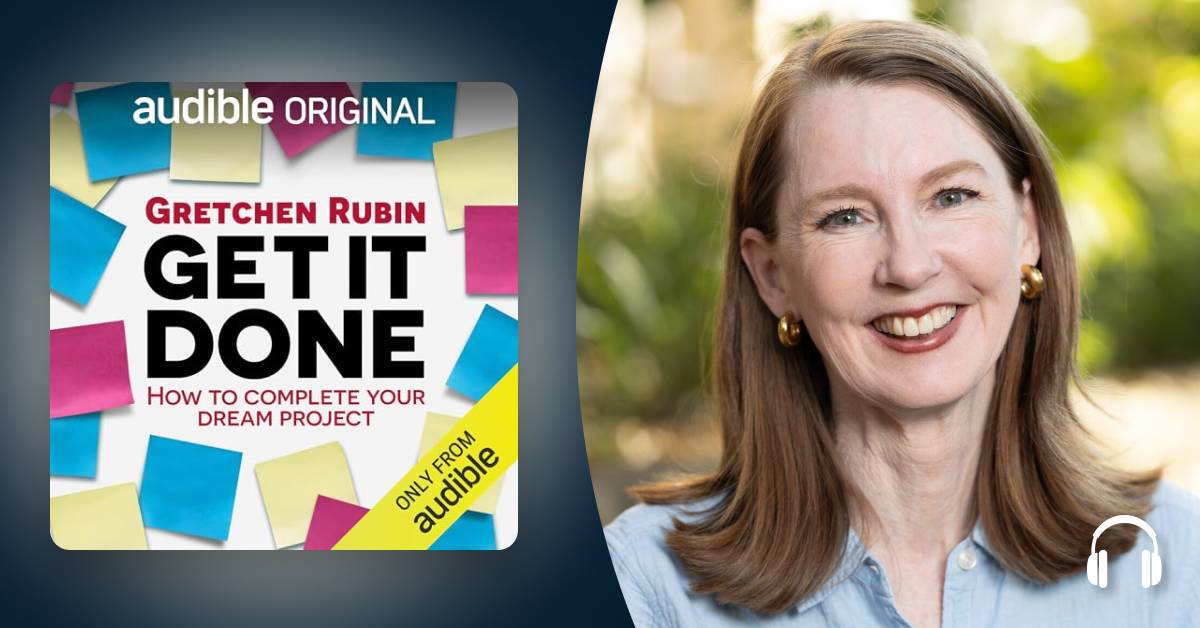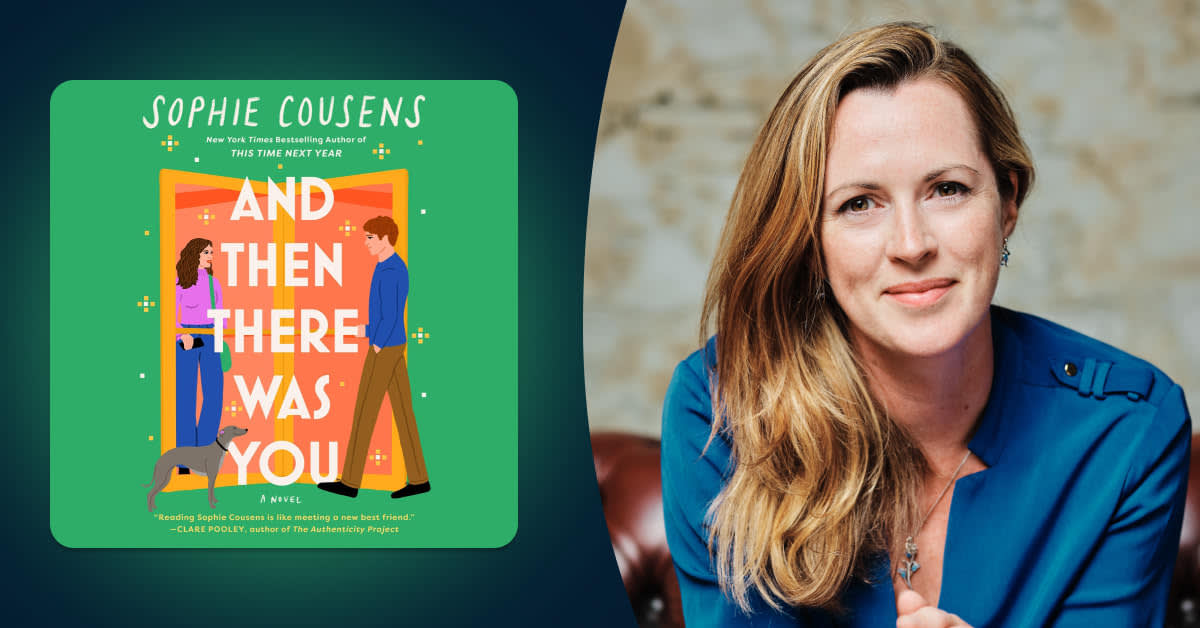Note: Text has been edited and may not match audio exactly.
Abby West: Hi, this is your Audible Editor Abby West, and I'm delighted to be talking today with internationally-renowned actress Diane Kruger about the new Audible Original that she is narrating, The End of My Heart, by New York Times bestselling YA author Gayle Forman. Welcome, Diane.
Diane Kruger: Hi. Nice to meet you. By phone.
AW: Yes, nice to meet you by phone, because we are doing what every one of us is doing: quarantining and staying our behinds at home. And for you that has the added trickiness of recording and narrating a new book from your home. What's that been like for you?
DK: It was really fun to do. I'd never narrated a book. I've done a little bit of animation work, but this was new for me, and it was so fun to do it at home. It was kind of fun to set up a little recording studio in my basement and try to make the sound as good as it could be under the circumstances. But maybe because of that it felt really intimate. I was just by myself very early in the morning, in my house here in Los Angeles, reading a book out loud and it was really fun.
AW: I can definitely see how that would make the experience more intimate, and something like this topic—getting into someone's head and having that space to do it in would be amazing.
DK: Yeah. Being German myself, given the subject matter, it was, definitely. I'd read the manuscript before I started recording it, but then sitting in my self-made tent and just allowing myself to feel the emotions of each character and doing a different voice for each character—you get lost. The hours passed so quickly, and I have to say I was a little sad as the recording was over to leave everybody behind.
AW: Well, let's talk to other folks about what The End of My Heart discusses. It starts off with you getting to know teenage Charlotte, living under her mother's very strict rules about what she can and cannot do. And her mother, Mary, definitely has a past and a secret that she's hiding behind her very strict way of life. And that all unfolds in such a creative and interesting way, particularly with the parallel of the radio play going on alongside it [which is narrated separately by a large cast]. What was it that most appealed to you when you first read the manuscript?
...sitting in my self-made tent and just allowing myself to feel the emotions of each character and doing a different voice for each character—you get lost.
DK: I just loved the characters all having—they all come across as very secretive. You think you're going to read a book about one thing, and you're surprised at how the motives and the characters unfold. [You have] racism and [you’re] just trying to protect from the big evil that was Nazi Germany, fleeing to the United States, and making a life for yourself. All those things are still very present, certainly for me as a German. I've heard so many of these stories, and the way it's narrated here, you can't help but get emotional because you feel for each character. You so dislike the mom in the beginning because she's too strict and too harsh, and then you come to understand why she is the way she is, and what that must have been like for her trying to protect her daughter. There's so much heartbreak for every character, you can't help but put yourself into each of their shoes. And so it's just a very human book. It's hard to describe. You feel you're with each and every one of them. You know?
AW: I can see that and I can absolutely understand why you gravitated to it. That’s the sort of thing I love: there are no black and white answers here. It's a very nuanced; just like you said, I completely disliked Mary in the beginning, but then you're like, "Oh my goodness, I really understand." Would it have been my choices? You don't really know if these would have been your choices.
DK: Yeah, exactly.
AW: You nodded to having the German background in common. I wanted to talk to you about what it was like to inhabit this woman who came to America at a time where she felt she so completely had to assimilate and hide who she was, and hide her accent, her past, her life, and her whole being. What was that like to inhabit her in this day and time?
DK: Well, I sympathize with her for coming to a country where you don't speak the language, not unlike myself when I first came to America. And a culture that is very different than what you're used to, and different codes and the way people interact with each other. And in her case also a different—all of a sudden having no money, having no family, having nothing to fall back onto, it’s so scary. And then having a young daughter to protect and the heartache of knowing that you're never going to see family again. My grandparents only passed away this year. They're of that generation of World War II, and the hardships and the stories are still very fresh in my mind. It's all my grandfather ever talked about. So it's definitely a part of my history it is still very much alive and is being kept alive by telling those stories and the important stories to tell.
And yet in this book, what I love is this human aspect and how quickly things can unravel. It's like the character of Prescott Thwaites who comes across as a charming gentlemen, who turns out to be a complete Nazi sympathizer, and Jew hater—there’s all this underlying sense of racism that we find everywhere in the world, not just in Germany. So it's a very modern story too of what is still happening today.
AW: It's really interesting, it's set in 1946, but the racial issues, the class difference issues— they seem still so relevant and prevalent today. And I just loved the way that Gayle played with this, and especially since this is her first non-YA work. It came through.
DK: But also, what I really loved and responded to is Charlotte's innocence. When she meets Marshall and David, she doesn't see the color. She doesn't see his religion. For her, they're just friends who actually see her for who she is. And it just shows you also how much racism, for example, is something that they teach you. You're not born like that, and the innocence of youth. That is something that I felt very connected with and I thought it was beautiful the way their friendship is blossoming in the book.
AW: What was it like for you to narrate the younger characters and to slip into that headspace?
DK: It felt like a relief because all the other characters have their motives, and they're so adult. And it's always lovely to narrate—I mean the teenagers are not children, but in a sense they are, because they're just becoming aware of the world around them. They have hopes and dreams, and everything seems possible. And that's just so wonderful. I'm a new mom, I have an 18-month-old daughter, and you want that for your children. And it's so terrible, Charlotte's relationship with her mom, how she wants really to protect her from her dreams, in a way, worrying so much that they will never become true and to spare her that heartache. So there's so many layers to those characters, which I thought were wonderful.
Just having this time, especially during this particular time we're going through right now, was a gift.
AW: And at the same time you had to portray Charlotte's childhood trauma and in a very present way. Was it challenging to navigate that shift in her perspectives?
DK: No. I'm not on stage performing it, but you just allow yourself to feel for that character. A friend of mine, when I was going to school in Germany, his grandmother was schizophrenic, and she would run into her basement pretty much every day screaming "The Nazis are coming, the Nazis are coming." And I remember being there one day and just witnessing that and the trauma of her childhood during the war, and just feeling the sense of helplessness. But in a way what's happening here is Charlotte is young enough to work through it, and because of what she experienced and managed to bury in a very dark place in herself, she's still young enough to be able to work through it and come out on the other side stronger, and find her true identity. And I think that's a really hopeful and beautiful journey for her.
[Note: spoilers ahead!]
AW: Do you feel as though Mary has a similar arc to finding herself?
DK: I don't know how to feel about Mary. I feel for her, of course, in her pursuit of love and wanting to protect her daughter as best as she can. There are some choices that I would have hopefully made differently in her shoes. But I try not to judge characters that I interpret or read about, because everybody is so different. And I'm sure she loved her daughter and did what she thought was best, and she lost herself along the way. She became a shell of the person that she used to be, which is so beautifully portrayed in the flashbacks. We see how she was, we see how warm and how much in love she was, and a different life she led. Her disappearing in the end is, I don't know. I don't know how I feel about it. I definitely have been thinking about it.
AW: It lingers with you. Were you surprised? Did you have that moment of surprise? Were the revelation unfurled, when you first read it?
DK: I was. You start thinking what's going to happen three quarters through. But because we keep going back between Mary and Charlotte, I wasn't quite sure how it was going to all tie in together. But definitely the way it's written has a big emotional impact I think on the reader. Because it's just so, like I said, you immediately start feeling for each one of them. And you start rooting for Charlotte so much. And in a way, Mary too. I just, I don't know. It's really well thought out and thought through.
AW: Well, now that you've had this first narration experience, can we maybe expect some others from you?
DK: I would love to. I really loved the experience. I cannot say it enough. It's just time you get to spend by yourself, reading and narrating a good story. And reading out loud is a great exercise, you really listen. You really have to know the story. You really get into a book much more nearly than just reading it a few pages each night. Just having this time, especially during this particular time we're going through right now, was a gift. I was really grateful and I had looked forward to getting up early every day.
AW: That is a wonderful endorsement. Do you listen to any audiobooks? Was it something you did before?
DK: Yeah, some, often in my car. Again, I have a young daughter so it's not so easy to find time to read or listen to a book, but I always do when I'm in my car. And I enjoy that too, especially if it's a voice that holds your attention. Someone who you can really tell is into reading this book and is not just reading it. It's like you get hypnotized by a voice, like a good friend you want to listen to.
AW: And I think we could all use that good friend to listen to right about now. Diane, thank you so much for joining us and talking about The End of My Heart by Gayle Forman. I'm excited for other people to get to hear your wonderful narration and go from there.
DK: Thank you so much, and thank you for the opportunity.







